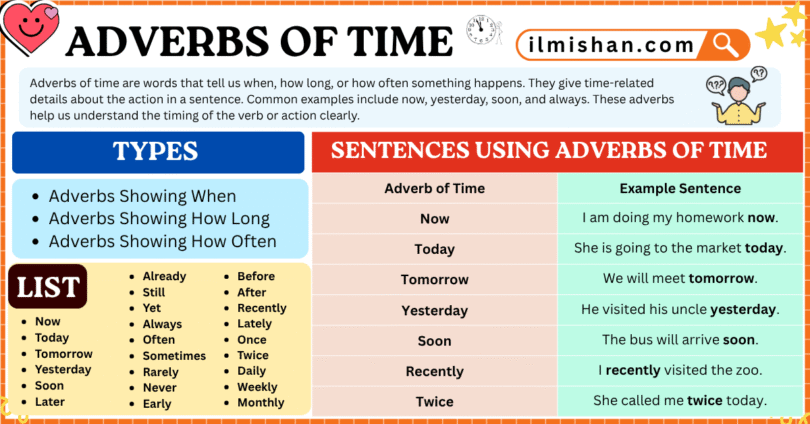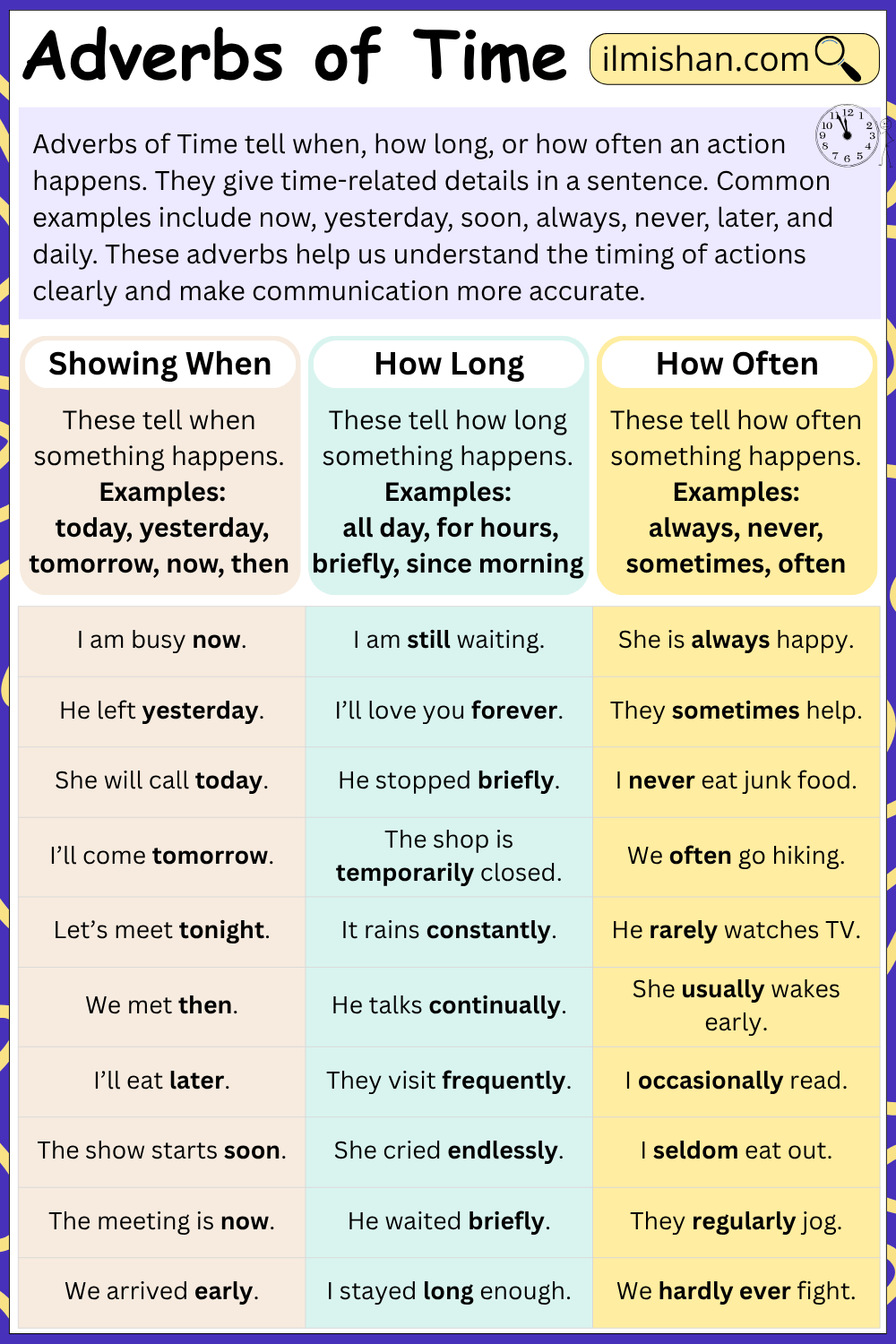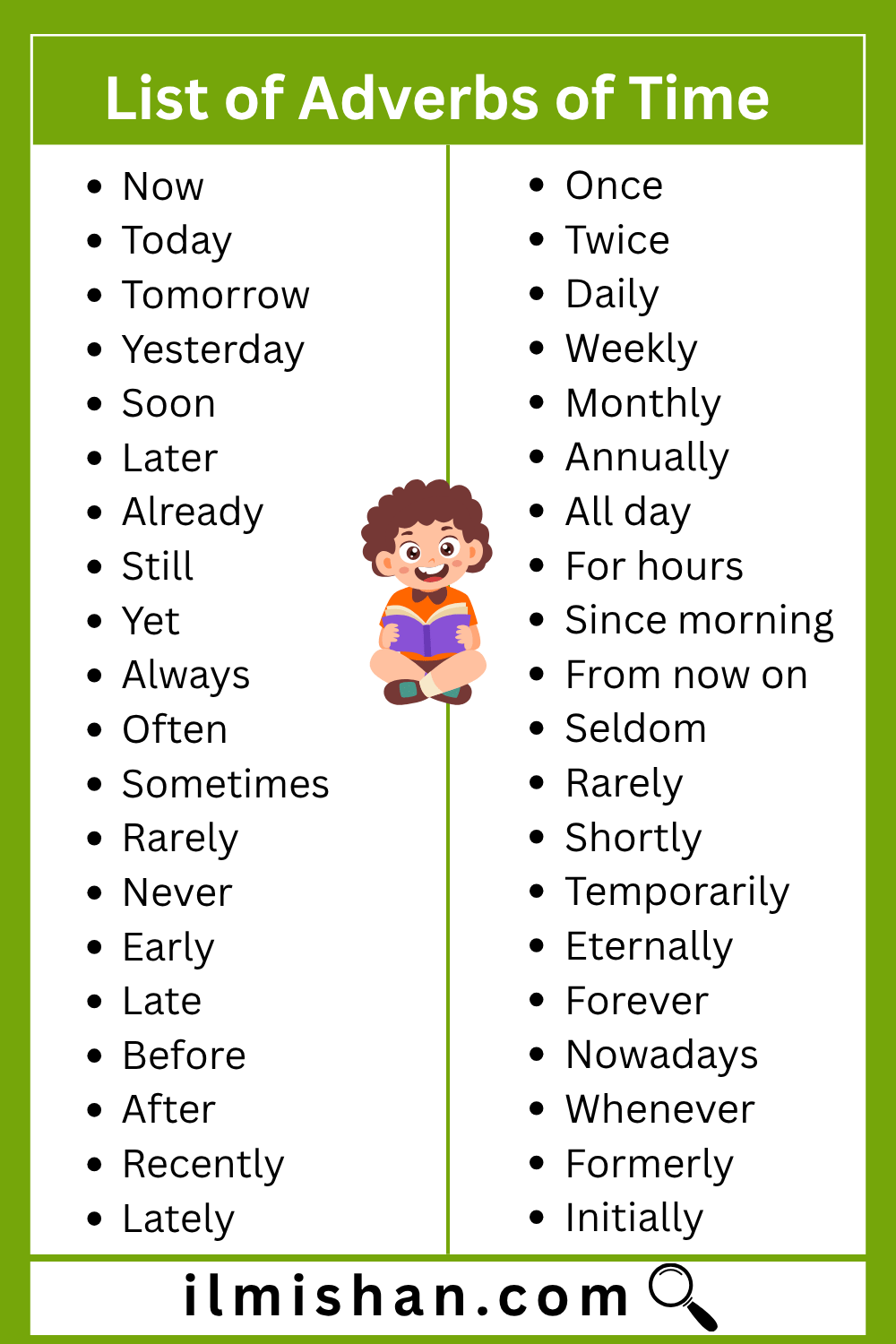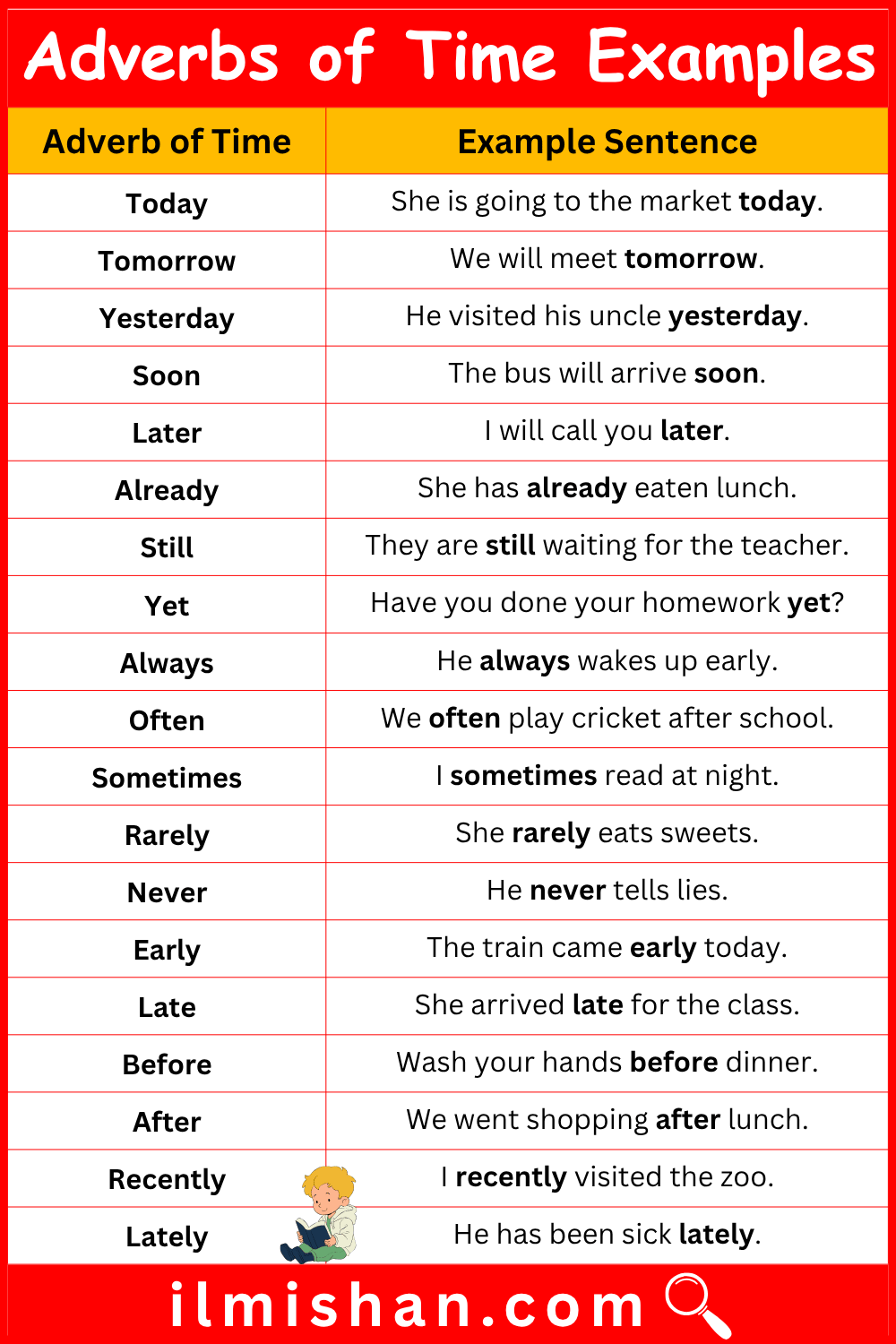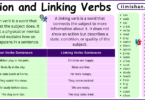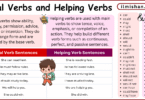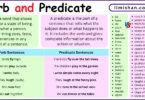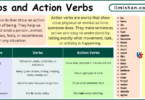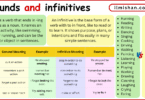What Are Adverbs of Time?
Adverbs of time are words that tell us when an action happens, how long it lasts, or how often it happens. These words give information about time in a sentence and usually answer the questions:
- When?
- How long?
- How often?
These adverbs can appear at the beginning, middle, or end of a sentence, depending on what the speaker wants to focus on.
Types of Adverbs of Time
Adverbs of time can be divided into three main categories:
| Category | Purpose | Examples |
|---|---|---|
| Time (When) | Tells when something happens | Today, Tomorrow, Now, Later, Yesterday |
| Duration (How long) | Tells how long something lasts | All day, For a while, Since morning |
| Frequency (How often) | Tells how often something happens | Always, Often, Never, Sometimes, Usually |
1. Adverbs Showing When
These adverbs answer the question: When did it happen?
Examples:
- I met her yesterday.
- He will call you soon.
- We are leaving now.
- The exam is tomorrow.
- She arrived early.
2. Adverbs Showing How Long
These adverbs tell us the duration of an action.
Examples:
- He waited all day.
- I have lived here for years.
- She stayed a while.
- We have been friends since childhood.
3. Adverbs Showing How Often
These adverbs describe how frequently something happens.
Position of Adverbs of Time in a Sentence
Adverbs of time can be placed in different parts of a sentence depending on the focus.
🔹 At the Beginning
Used for emphasis or style
-
Yesterday, we went to the beach.
-
Soon, you will understand.
🔹 In the Middle
Usually placed before the main verb
-
She always wakes up early.
-
I sometimes forget my keys.
🔹 At the End
Most common position for adverbs of time
-
We will meet tomorrow.
-
He stayed for a while.
Common Adverbs of Time List
Here is a useful list for daily use and exam preparation:
| Adverbs of Time | Used For | Example Sentence |
|---|---|---|
| Now | Present moment | I am busy now. |
| Today | Current day | She is not coming today. |
| Tomorrow | Next day | The event is tomorrow. |
| Yesterday | Previous day | He was here yesterday. |
| Later | Future time | I’ll do it later. |
| Soon | Near future | The results will be out soon. |
| Already | Earlier than expected | I’ve already finished my work. |
| Still | Continuing | She is still sleeping. |
| Yet | Until now (in questions or negatives) | Has he come yet? |
| Since | From a past point | I’ve been here since morning. |
Important Grammar Tips
✅ Use Commas When Needed
-
Yesterday, we went shopping.
-
After a while, he spoke.
✅ Don’t Use Two Time Adverbs Together
❌ I will meet you today tomorrow.
✅ I will meet you tomorrow.
✅ “For” vs. “Since”
| Word | Use with | Example |
|---|---|---|
| For | Duration | I stayed there for two hours. |
| Since | Specific starting point | He’s been gone since Monday. |
Advanced Uses of Adverbs of Time
🔸 Using Multiple Adverbs
Sometimes, you can use two adverbs of time (e.g., frequency + duration):
-
I’ve always worked for long hours.
-
She often comes early.
🔸 With Tenses
-
Present Perfect: I have already eaten.
-
Past Perfect: He had never seen it before.
-
Future: We will leave soon.
Quick Revision Table
| Adverb Type | Example Words | Example Sentence |
|---|---|---|
| When | Today, Tomorrow, Now | We are leaving now. |
| Duration | All day, For hours, Since Monday | I waited all day. |
| Frequency | Always, Sometimes, Never | He always drinks tea in the morning. |
List of Adverbs of Time
- Now
- Today
- Tomorrow
- Yesterday
- Soon
- Later
- Already
- Still
- Yet
- Always
- Often
- Sometimes
- Rarely
- Never
- Early
- Late
- Before
- After
- Recently
- Lately
- Once
- Twice
- Daily
- Weekly
- Monthly
- Annually
- All day
- For hours
- Since morning
- From now on
30 Sentences Using Adverbs of Time
| No. | Adverb of Time | Example Sentence |
|---|---|---|
| 1 | Now | I am doing my homework now. |
| 2 | Today | She is going to the market today. |
| 3 | Tomorrow | We will meet tomorrow. |
| 4 | Yesterday | He visited his uncle yesterday. |
| 5 | Soon | The bus will arrive soon. |
| 6 | Later | I will call you later. |
| 7 | Already | She has already eaten lunch. |
| 8 | Still | They are still waiting for the teacher. |
| 9 | Yet | Have you done your homework yet? |
| 10 | Always | He always wakes up early. |
| 11 | Often | We often play cricket after school. |
| 12 | Sometimes | I sometimes read at night. |
| 13 | Rarely | She rarely eats sweets. |
| 14 | Never | He never tells lies. |
| 15 | Early | The train came early today. |
| 16 | Late | She arrived late for the class. |
| 17 | Before | Wash your hands before dinner. |
| 18 | After | We went shopping after lunch. |
| 19 | Recently | I recently visited the zoo. |
| 20 | Lately | He has been sick lately. |
| 21 | Once | I went to Murree once. |
| 22 | Twice | She called me twice today. |
| 23 | Daily | I go for a walk daily. |
| 24 | Weekly | We clean our house weekly. |
| 25 | Monthly | He pays the rent monthly. |
| 26 | Annually | The school holds a fair annually. |
| 27 | All day | She studied all day for the test. |
| 28 | For hours | They waited for hours in the rain. |
| 29 | Since morning | He has been working since morning. |
| 30 | From now on | I will study hard from now on. |
More helpful articles

